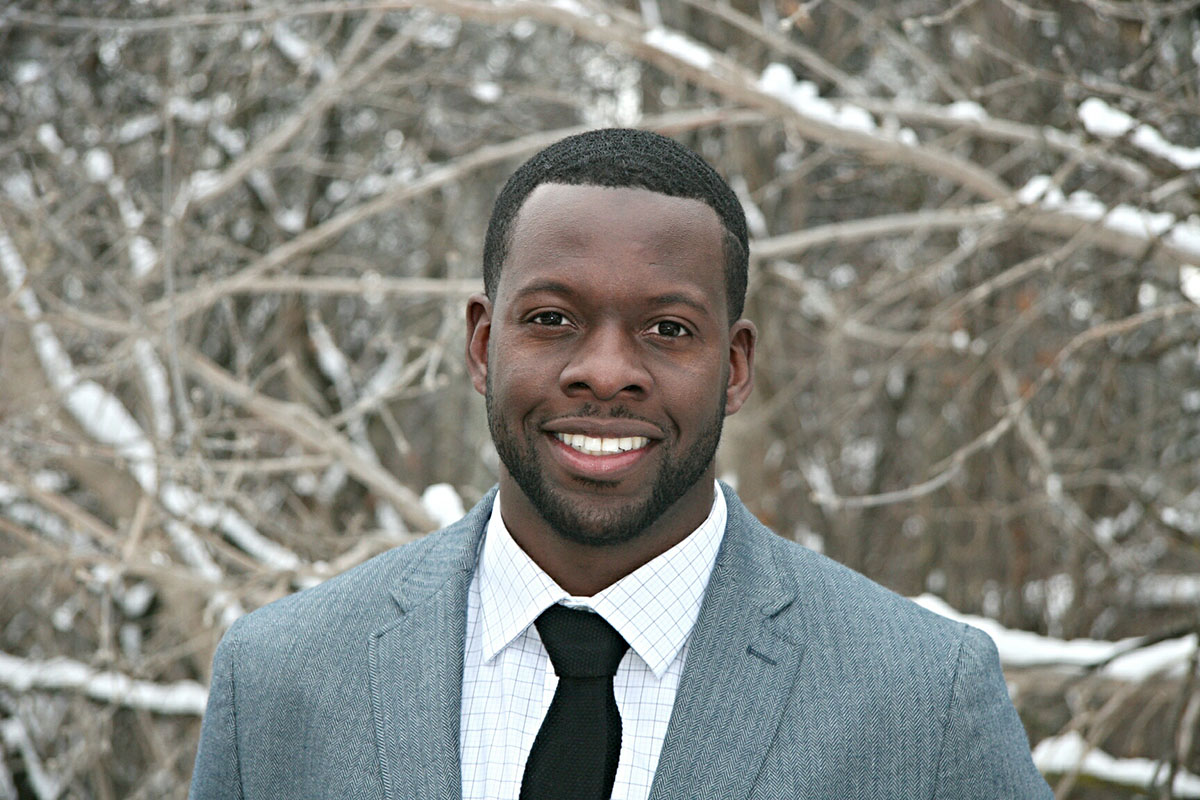Karl Mome: Tackling the markets with geophysics skills
Suzette Chan - 16 April 2020
Thanks to the University of Alberta’s Geophysics program, Karl Mome is equipped to tackle problems in volatile fields from resource exploration to financial markets. The one-time Golden Bear football player credits the program for helping him hone the technical, communication, and leadership skills that have led to his career in business analytics and strategy.

Karl Mome says geophysicists are looking to data science to help optimize their workflows, a skill that can be applied to other fields of work. (Photo supplied.)
Can you tell us what made you choose Geophysics and about your education and your professional career?
I chose to take Geophysics after taking Geophysics 110 as an elective, which sparked my passion for the field. While at the U of A, I also played football for the Golden Bears in 2009-10, as well as for the Edmonton Wildcats from 2011 to 2013. Another great set of memories come from my time serving as the UAGUS President in 2015. What I truly enjoyed most about the U of A was the campus and the professors. All of the geophysics professors cared for us as students and demonstrated their support by showing up to our student body events.
What did Geophysics 110 cover at the time, and which aspects of the course interested you the most?
Geophysics 110 was an intro to geophysics. We covered the basics of global and exploration geophysics. This included gravity and isostacy, seismology and earthquakes, geomagnetics and plate tectonic theory. Growing up in California, I was already into earthquakes. However, it wasn’t until a conversation about geomagnetics with Mathieu Dumberry, and the ensuing project on the earth’s magnetic field, which convinced me. I was in awe of the numerous ways geophysical data could be modeled, studied and ultimately communicated. At that point, it was clear this was the field for me.
Can you tell us about your current job?
I have been at Cenovus Energy for about five years now. Hired as a geophysicist, I have had the privilege of working in our Conventional, Exploration and Oilsands Development teams. More recently, however, I have had the opportunity to move to our Downstream Marketing Analytics and Strategy group. In my new role, I work with our traders, business development and greater commercial teams to maximize the value of Cenovus assets and products.
Do you employ any skills, knowledge, or methods from your time in the geophysics program to your work now?
The skill set I’ve used the most consistently at work is signal processing. Whether it be seismic data or financial curves, the goal is the same: to isolate the signal from the noise. In a broader sense, however, the general ability to frame, communicate and solve problems is a skill that I believe the U of A provides you with.
What part of your current job do you like?
The intrinsic volatility of commodity markets and my team itself, is what makes my current job exciting. The challenge of trying to understand the market, as well as the relevancy of the work to global current events is what I enjoy the most. I also get the opportunity to work on a team with a diversity of skill sets and experiences. The diversity of my current team reminds me of playing football. That is, you have specialist at their respective positions that come together to achieve a common goal. It’s a beautiful thing.
What advice would you give to undergraduate and graduate students studying Geophysics?
My advice to students would be to first and foremost remember that university is part of your life journey. As such, be sure to enjoy the moment. The U of A is a fun place, have some fun! If you’ve ever thought to yourself, “I am unsure what I want to do”, know that it is okay to not know! School is about learning; a lot of that learning is learning about yourself. Control what you can and let rest take care of itself. With regards to having a successful academic career, my advice would be to set a good routine. Find a schedule that you can stick to. Thinking about getting a job? Get a mentor! One of the best things I did was to reach out and get mentorship while I was still in school. Mentorship did more than help me avoid common pitfalls, I also made a great friend. Lastly when considering a career, find your passion first. Think of what takes up your free time, align your skills to those passions.
Was getting a mentor part of a formal process?
Mentorship was an informal process, The Canadian Society of Exploration Geophysics (CSEG) does a great job of running a mentorship program. Shell was having a recruitment day on campus and I had a great conversation with one of their recruiters at the time who happened to be a former U of A student. I asked him if he’d be interested in mentoring me and he agreed. We’ve been good friends ever since. Ironically, we now live in the same neighborhood.
What developments / trends do you see in the geophysical industry in the coming years?
As most other professions, geophysicists are looking more and more towards data science to help optimize their workflows. A space that is becoming more standard is also the quantitative interpretation field (QI). QI methods along with Rock Physics are helping geophysicist measure and communicate the opportunity and risk associated with resource exploration and development.
This profile is part of our Geophysics Careers series.